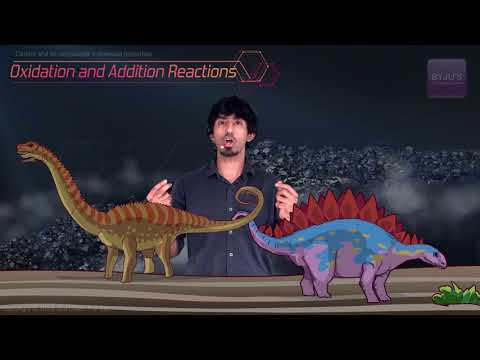Introduction
Environmental pollution may be of six types – air pollution, water pollution, soil pollution, noise pollution, pollution by radioactive substances and thermal pollution.
Depending on the nature of pollutants, they can belong to three major categories – biological (pathogenic organisms, products of biological origin), chemical (toxic metals, agrochemicals, gaseous pollutants, particulates, hazards chemicals, carcinogenic substances, petroleum products, acidic or basic substances and radiation (ionizing and non-ionizing), radioactive substances, sound waves, foul odours.
Due to the rapid growth of population and industrialization environmental pollution is increasing at an alarming rate. Thus water is getting polluted by sewage and domestic effluents, industrial effluents, agricultural discharges, detergents, toxic metals and radioactive materials. Even underground water has been polluted by the leaching of various pollutants from the surface.
Table of Contents
- Recommended Videos
- Effect of major air pollutants
- Effect of radioactive pollution
- Effect of Water Polution
- Soil Pollution Heath Effect
- Frequently Asked Questions on Effects of Environmental Pollution
Recommended Videos
Air and Water Pollution

Effects of Burning Fuels

Effects of major air pollutants
Gaseous pollutants produced in significant amounts adversely affect human health. Over billion tonnes of pollutants are released into the atmosphere from human activities. The most common and acute health problems caused by gaseous pollutants include bronchitis and congestion in the chest and wheezing. These effects can be reduced if the exposure to pollutants is reduced.
- Sulphur dioxide – Sulphur dioxide is a major cause of lung diseases. It is responsible for irritation in the nose and mucus lining., shortness of breath, accumulation of fluids in tissues, oedema, and bronchospasm.
- Oxides of nitrogen – Oxides of nitrogen released from the exhausts of buses, trucks and two wheelers cause irritation of eyes and lungs.Inhalation of these oxides in large amounts may lead to gum inflammation, internal bleeding, pneumonia and even cancer.
- Carbon monoxide – It is known to be an extremely toxic gas. On entering the bloodstream, it completely inhibits the combining capacity of oxygen with haemoglobin. In fact, the affinity of carbon monoxide for blood is 240 times more than that of oxygen.
Effects of radioactive pollution
The impact of radiation on health depends on a number of factors such as the energy, types and amount of radiation, the age of the individual and the body part exposed. Ionising radiation may cause the following biological effects in human beings.
- Carcinogenic effects – Ionizing radiation increases the probability of most forms of cancer.
- Mutagenic effects – The genetic material changes due to mutagenic effects and the mutations get transferred to the offspring.
- Teratogenic effects – The development of the embryo is affected and this results in birth defects.
It has been found that cells which undergo rapid division are more sensitive to radiation. The foetus is more sensitive to radiation and so are the children. Most of the studies on radiation have been conducted on animals. Although the result gave some idea of the damage caused by radiation, they cannot be extrapolated to human beings.
Effects of Water Pollution
Chemical contaminants occur in drinking water throughout the water supply systems ranging from barely detectable amounts to levels that could possibly threaten human health. Determining the health effects of these contaminants is difficult, especially since researchers are still learning how chemicals react in the body to damage cells and cause illness.
Toxic doses of chemicals cause either acute or chronic health effects. An acute effect usually follows a large dose of a chemical and occurs almost immediately. Examples of acute health effects are nausea, lung irritation, skin rash, vomiting, dizziness and even death.
Soil Pollution Health Effect
Soil pollution receives less attention when compared to air pollution and water pollution. However, soil pollution is grabbing more attention nowadays. Undoubtedly, soil is an indispensable environmental matrix for the growth of any terrestrial plant. Nevertheless, the rapid growth rate of population expansion and urbanization exceeds the sustainability and recovery capability of the ecosystem. This has virtually resulted in soil pollution.
The basis of agriculture is soil. All crops for human food and animal feed depend upon it. We are losing this important natural resource by the accelerated corrosion to some extent. In addition to this, the enormous quantities of man-made waste products sludge and other products from new waste treatment plants and even polluted water are also causing or leading to soil pollution. In order to preserve the fertility and the productivity of the soil control measures are to be taken in a herculean manner, thereby improving the health of all living beings.
Pollution occurs mainly when human activities disrupt natural elemental cycles or reservoirs. The main sources of anthropogenic pollution can be broadly categorised as energy production, industry, agriculture, transportation and waste management. Pollution can be explained using the source pathway receptor concept known as the pollutant linkage. Pollution can have environmental, ecotoxicological and human health impacts. The main responses to pollution are based on legislation, technology and economic measures.
Frequently Asked Questions on Effects of Environmental Pollution
What are the main causes of environmental pollution?
There can be so many environmental pollution causes including fossil fuel emissions from power plants, automotive waste, high exhaust gases, chemical effluents, toxins and soil erosion. Additionally, ruinous and unsuccessful agricultural policies may also cause contamination of the environment.
What are the effects of pollution?
High air pollution rates can lead to an increased risk of heart disease, wheezing, coughing and breathing difficulties, and eye, nose and throat irritation. Air pollution can also cause heart attacks, asthma and other lung conditions to worsen.
What are the main environmental problems?
Environmental issues such as global warming, acid rain, air pollution, urban sprawl, waste disposal, depletion of the ozone layer, water pollution, climate change and much more affect on every human being, animal and nation on this planet.
What are environmental impacts?
Environmental impact is characterized as any environmental change, be it adverse or beneficial, wholly or partially resulting from the activities, goods, or services of an organization.
Why are environmental problems difficult?
Owing to their nature, environmental problems are difficult to solve, and there is no right or wrong way to solve them. Environmental issues often overlap with one another, including social and economic problems.

Comments